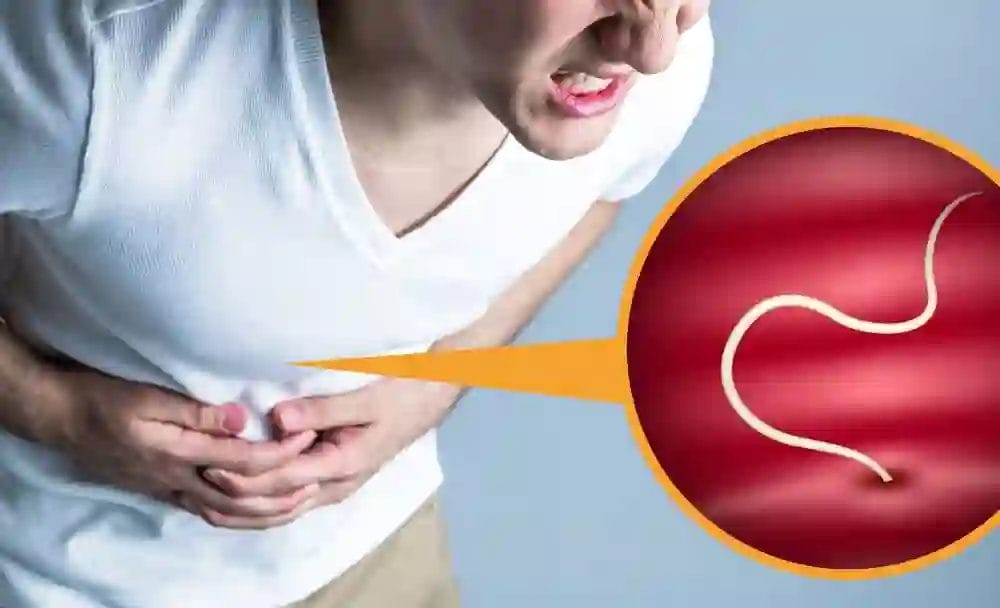This article is reviewed by Dr. Rao
Intestinal worms, also known as stomach worms, are parasitic organisms that can infect the gastrointestinal tract of humans. These tiny organisms can cause a wide range of symptoms and health issues, affecting individuals of all ages. Understanding the symptoms, causes, diagnosis, and treatment options for intestinal worms is crucial for prompt identification and effective management of this condition. In this comprehensive article, we will delve into the world of intestinal worms, exploring their impact on human health and shedding light on various aspects of this parasitic infection.
Intestinal worms can affect different parts of the digestive system, including the stomach, small intestine, and large intestine. They can range in size, from microscopic organisms to larger worms that are visible to the naked eye. These parasites can enter the body through various routes, such as contaminated food and water, poor hygiene practices, or close contact with infected individuals.
Symptoms of Intestinal Worms
The symptoms of intestinal worms can vary depending on the type of parasite and the severity of the infection. Common symptoms include [1]:
- Abdominal pain
Stomach worms can cause discomfort and pain in the abdominal area. This pain may be intermittent or persistent.
- Diarrhoea or constipation
Infected individuals may experience changes in bowel habits, including diarrhoea or constipation. These changes may be accompanied by increased frequency or urgency.
- Weight loss
Intestinal worms can interfere with the absorption of nutrients, leading to weight loss and malnutrition.
- Fatigue and weakness
Chronic infections with stomach worms can result in fatigue, weakness, and a general feeling of lethargy.
- Nausea and vomiting
Some individuals may experience nausea and vomiting as a result of the infection.
- Itching around the anus
In cases of certain types of worms, such as pinworms, itching around the anus or vaginal area may occur, especially at night.
- Visible worms in stool
In severe cases, worms may be visible in the stool or vomit.
Causes of Intestinal Worms
Intestinal worms are typically caused by ingesting the eggs or larvae of the parasites. The common ways of contracting stomach worms include [1]:
- Contaminated food and water
Consuming food or water that has been contaminated with the eggs or larvae of intestinal worms can lead to infection.
- Poor hygiene practices
Inadequate handwashing, improper disposal of faeces, and poor sanitation can contribute to the spread of stomach worms.
- Close contact with infected individuals
Direct contact with an infected person or their personal items can increase the risk of transmission.
Diagnosis of Intestinal Worms
If you suspect you have intestinal worms, it is important to seek medical evaluation for an accurate diagnosis. Healthcare professionals may use the following methods to diagnose stomach worms [2]:
- Stool sample analysis
Examination of a stool sample can help identify the presence of worm eggs or larvae.
- Blood tests
Blood tests may be conducted to check for specific antibodies or markers indicating the presence of certain types of worms.
- Imaging tests
In some cases, imaging tests such as ultrasound or endoscopy may be used to visualize the gastrointestinal tract and identify any worms or related complications.
Treatment of Intestinal Worms
The treatment for intestinal worms typically involves medication to kill and eliminate the parasites. The specific type of medication and duration of treatment may vary depending on the type of worm and the severity of the infection. Common medications for treating stomach worms include:
- Anthelmintic drugs
These medications are specifically designed to target and eliminate intestinal worms. They are available in various forms such as tablets, capsules, or suspensions [3].
- Combination therapy
In certain cases, a combination of different medications may be prescribed to effectively treat multiple types of worms [1].
- Follow-up testing
After completing the prescribed treatment, follow-up testing may be recommended to ensure the elimination of the worms and to monitor for any recurrence [1].
Home Remedies for Intestinal Worms
In addition to medical treatment, certain home remedies may help support the treatment of intestinal worms. It is important to note that these remedies should not replace medical treatment but can be used as supportive measures. Some common home remedies include [4]:
- Hygiene practices
Practising good hygiene, such as frequent handwashing, keeping nails trimmed, and maintaining a clean living environment, can help prevent the spread of worms.
- Dietary modifications
Consuming a nutritious diet rich in fruits, vegetables, and fibre can support overall gut health and promote the elimination of worms.
- Herbal remedies
Some herbs and spices, such as garlic, and papaya seeds, are believed to have antiparasitic properties and may be incorporated into the diet or taken as supplements.
Conclusion
Intestinal worms, or stomach worms, can cause various symptoms and health issues. It is essential to recognize the signs of infection and seek proper medical evaluation and treatment. Prompt diagnosis and appropriate treatment with anthelmintic drugs can effectively eliminate the worms and alleviate symptoms. Additionally, practising good hygiene, maintaining a healthy diet, and considering supportive home remedies can aid in the treatment process. Remember, it is important to consult a healthcare professional for an accurate diagnosis and personalized treatment plan.
Disclaimer: The information provided here is for general information and not meant to substitute any medical advice. Please consult your doctor for appropriate medical consultation.
References:
- https://www.healthline.com/health/intestinal-worms
- https://www.mayoclinic.org/diseases-conditions/ascariasis/diagnosis-treatment/drc-20369597#:~:text=If%20you’re%20infested%20with,in%20the%20pancreas%20or%20liver.
- https://pubmed.ncbi.nlm.nih.gov/12321815/
- https://www.medicalnewstoday.com/articles/322714#medical-treatment


















